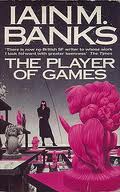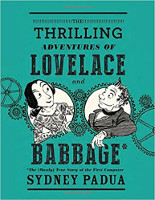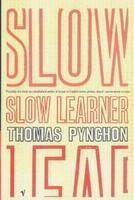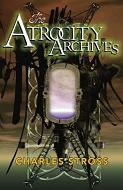 Here's a review of another classic – this time it’s The Player of Games by Iain M Banks, a book from the Culture series, centred around a game which defines a galactic empire, or, rather, which IS said galactic empire.
Here's a review of another classic – this time it’s The Player of Games by Iain M Banks, a book from the Culture series, centred around a game which defines a galactic empire, or, rather, which IS said galactic empire.
Nearly 20 years old but not really dated at all, an excellent book, and a ‘must read’ for all SF fans and especially serious gamers! Highly recommended.
Jernau Morat Gurgeh (I will stay off the full size Culture nomenclature for this review, ok? If you know Banks you know what I mean…) is a professional player of games. He lives on the Chiark Orbital, a backwater in terms of the Culture, where the cutting edge lives on huge ships, and where everything you want in terms of possessions or amusements is yours for the taking. Paradise? Elysium? Or an elaborate disguise of Hell? You decide. But Gurgeh, master of all games requiring strategy, knowledge, cunning (as long as it doesn’t involve physical prowess) feels an emptiness. Despite having all he wants, and doing what he loves best (playing games, winning games, writing papers on games, being renowned as one of the best players of games in the Culture) is becoming more and more restless, and thus less and less happy with his increasingly stale and repetitive life.
When he is offered to play against Olz Hap, a wunderkind freshly off a GSV (General Systems Vehicle – a ship holding millions of people) he is eager to take on the challenge. Olz proves a more formidable challenge than expected, though – and even as he is winning he takes up the offer of Mawhrin-Skel, a drone that has been thrown out of the Special Circumstances section of Contact, who reveals to him some key positions in the game. But Mahwrin-Skel has an agenda – he wants his old position back, and he wants Gurgeh’s support, and blackmail is his way of ensuring Gurgeh’s co-operation.
Meanwhile Cahmlis Amalk-ney, a drone counting millennia of age and a friend of Gurgeh's family, has contacted Contact with a request of a fresh challenge for Gurgeh. The answer they receive is yes, there is. 2 years Overspace travel away there is an Empire, not part of the Culture, which is based on a game, called Azad (both the game and the Empire). The game is constructed from a large number of complex games interacting. It is modelled on the society of Azad, on its values and morals, on its societal structure. And it is played in a huge tournament every 6 years, to determine who will hold which position of power for the next period. The winner is the new Emperor of the interstellar Empire of Azad. The game is the Empire is the game, if you take my drift.
Gurgeh, naturally, is intrigued. Despite the huge distance (he’s never been away for more than half a year) he takes up the challenge of representing the Culture as a guest for the next tournament of Azad – mainly to get away from his life, and from Mawhrin-Skel, of course. And so the games commence…
This story plays within the techno-sociological framework of Bank’s Culture (see other review for details), although this is only background here. The story itself is mainly concerned with playing games, having games played with you, and what this does to the player, the playee (did I just make this word up?) and to society that plays the game and is defined by and through it in the case of Azad.
The structure of the actual storyline is, er, linear, simple, and mainly focused on Gurgeh’s life in the run up and during the Azad tournament. It also dips quite heavily into the two societies involved – Gurgeh’s Orbital based, Culture protected, you-name-it-you-got-it society with very little of the usual pressures of existence, and the cut-throat, multi-class (and tri-sex!) society of Azad, which comes across as something we instantly recognize from our culture and society, and from the more extreme systems of governance we have seen (and still do) in our recent past as well as our present. The book doesn’t really judge, but it also makes it very clear where Gurgeh’s and the Culture’s sympathies lie.
On a more philosophical level the story deals with the idea of life as a game, a game a life, society as a game, and a game as a society. It also has a rather large number of levels it plays at – Contact plays a game with Azad (the Empire) on behalf of the Culture’s expansion and to this end plays a game with Gurgeh as a pawn, to play a game consisting of a number of games defining Azad… and so forth.
Don’t worry if this sounds complicated, it is not (unless you over-analyze as you read...er...), and you don’t need to see all those levels when you read the story. The book is set later than Consider Phlebas, the first book in the series, but you don’t need to have read this book to enjoy The Player of Games, there’s nothing but a few obscure references (and the fact that it plays in the Culture) that link back to what passed earlier.
The book makes for a fascinating read, even more so if you like to play games (a must read for all gaming SF-Fans!). The story starts quite slowly, but builds up speed later, and does not relent until the very end. I missed several train and bus stops in the process…
An excellent book, the best Banks I’ve read to date.
More Iain M Banks
Title: The Player of Games
Series: Culture
Series Number: 2
Author: Iain M Banks
Reviewer: Markus
Reviewer URL: http://skating.thierstein.net
Publisher: Orbit
Publisher URL: http://www.orbitbooks.co.uk
Publication Date: 1988
Review Date: 22 March 2007
ISBN: 1857231465
Price: UKP 7.99 PRRP
Pages: 309
Format: Paperback
Topic: SF
Topic: Space Opera
Topic: Gaming













